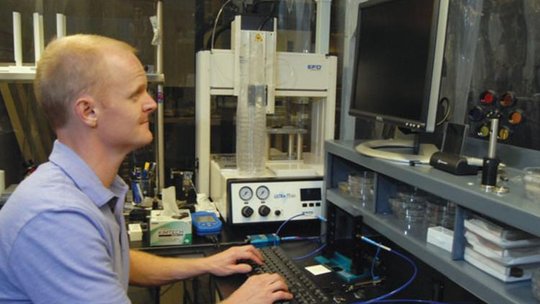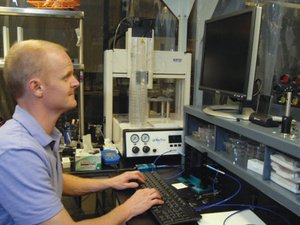
A business unit that means millions in losses for Meta could someday have a big impact on the Triangle, bolstered by a stealthy team incubated at N.C. State University.
Reality Labs, the unit behind Meta’s virtual reality and augmented reality technologies, registered a $3.7 billion operating loss on $276 million in sales during the firm’s second quarter.
Last year the Reality Labs unit lost $13.7 billion, reeling in just under $2.2 billion in revenue.
Its total losses, according got Meta, come in at about $21.3 billion since the beginning of last year. And Wednesday on Meta’s earnings call, executives said those losses would increase meaningfully due to ongoing product development efforts.
Some of those efforts are happening in Durham where, in 2021, Meta acquired optical technology firm ImagineOptix, an N.C. State spin-out.
Despite the losses, Meta executives repeatedly said Reality Labs has an “ambitious long-term horizon,” and that their belief in a VR world had not dampened.
“This is a very long-term bet,” CEO Mark Zuckerberg told analysts, adding that he “can’t guarantee you that I’m going to be right about this bet.”
“I do think that this is the direction that the world is going in,” he said.
Chief Financial Officer Susan Li told analysts the firm has “a long-term time horizon for evaluating the return on our investments here.”
“Our ambitions in Reality Labs haven’t changed and it continues to be a significant long-term opportunity for us,” she said, noting it’s a wide portfolio of components in the VR and augmented reality arenas.
Meta’s Reality Labs segment has a presence in Durham, though Meta has not been transparent with the details.
And it’s gotten a boost from its ImagineOptix deal.
ImagineOptix was founded in 2004 by N.C. State Professor Michael Escuti, IBM veteran Dennis Kekas, Kekas’ son, Jason, and Erin Clark, who led the company before its buyout by Meta. According to Meta spokesman Tracy Clayton, Meta has about 100 engineers based in Durham.
ImagineOptix grew out of an on-campus laboratory to a small manufacturing facility on Durham’s T.W. Alexander Drive.
Quietly, it developed optics technologies for use in a variety of applications, including components of the LIDAR systems used in autonomous vehicles.
The liquid crystal lenses it was developing also worked in VR headsets.
Meta, which was developing its own VR headset technology, acquired the company in 2021.
Since the buyout, the team has been quiet.
Clark, who could not be reached for comment, now lists his job title as a manager with Meta in Durham, “managing key commercialization efforts.”
Meta did not return a request to comment but continues to list open jobs on its careers website for Durham. Recently there were five local positions on the site, including a position for an optical research engineer.
Meta Platforms (Nasdaq: META) closed at $298.57 Wednesday and was trading at around $319 as of noon Thursday.




